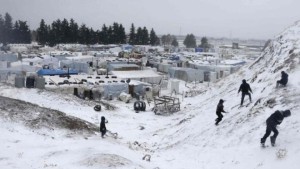Dhaka – The phenomenon of fundamentalism is fueling growing intolerance worldwide, which poses a grave threat to the rights to freedom of peaceful assembly and of association, Unb news agency reported.
United Nations expert Maina Kiai said this at the Human Rights Council on Friday in presenting his latest report on religious, free market, political, and nationalist or cultural fundamentalism, according to a message received here from Geneva.“The concept of fundamentalism cannot be limited to religion,” cautioned the UN Special Rapporteur on the rights to freedom of peaceful assembly and of association.
“It can and should be defined more expansively, to include any movements – not simply religious ones – that advocate strict and literal adherence to a set of basic beliefs or principles.”
“At its core, this report is about the struggle between tolerance and intolerance,” Kiai stressed.
“The people of the world speak some 7,000 languages, practice 270 major religions, live in 193 UN Member States and belong to thousands of cultures. But we share only one planet,” the human rights expert said.
For the Special Rapporteur, the rights to freedom of peaceful assembly and of association are the ‘bedrock’ of such tolerance, because they help ensure that “all of humanity, in its stunning
diversity, has a voice.”
Despite this, he noted, many States are moving in the wrong direction, promoting fundamentalist viewpoints -whether via government policy or by supporting non-State actors- and suppressing
dissent.
“The rights to freedom of peaceful assembly and of association unequivocally include the right to assemble and associate for political purposes,” the Special Rapporteur said.
This may pose a threat to the Government’s hold on power, but this should not be confused with a threat to the State itself. The former is democracy at work; the latter is how autocracies work. “The failure of States to ensure a tolerant environment,” Kiai noted, “can have catastrophic results.”
“Denying these rights does not make peoples’ feelings of anger, despair and dissatisfaction go away. It simply pushes these feelings underground, where they can fester and turn violent,” the human rights expert concluded.




